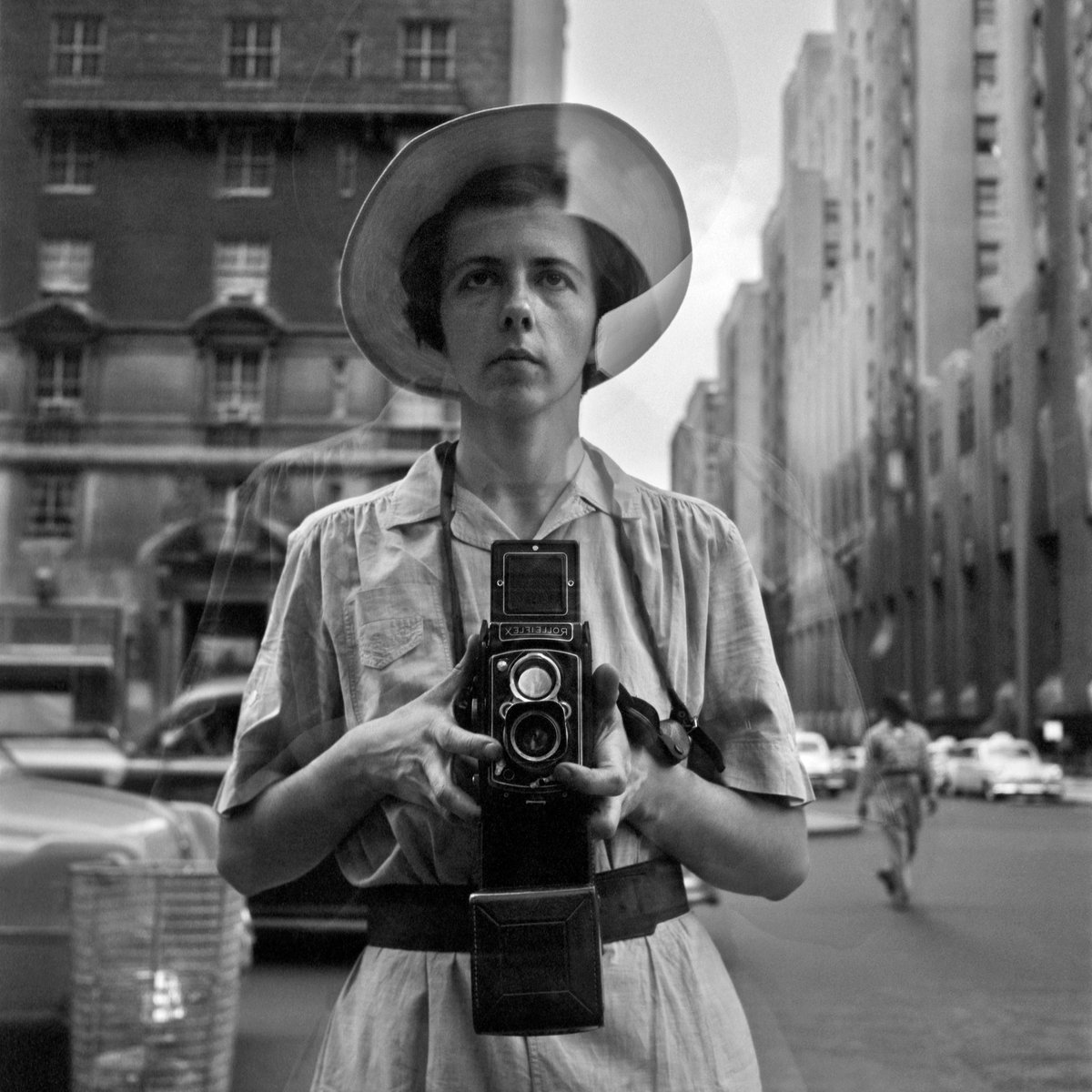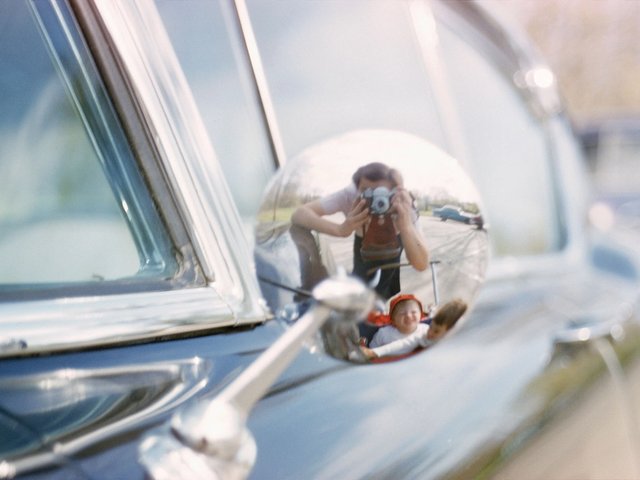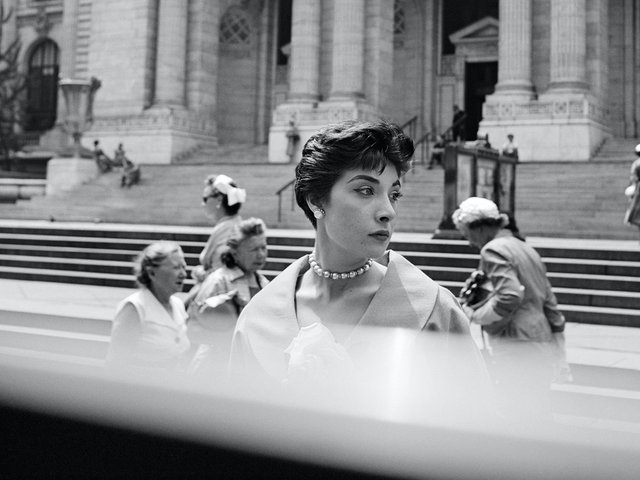The late French American photographer Vivian Maier, who rose to fame posthumously after her archive was serendipitously rediscovered in the late 2000s, will have her first major exhibition in New York next year at Fotografiska. This iteration of the traveling show will emphasise the “New York dimension of her work”, highlighting the place where Maier “defined her visual language”, the curator, Anne Morin, tells The Art Newspaper.
The exhibition made its debut at the Musée du Luxembourg in 2021 and travelled to the Royal Museums in Turin and the Ground Seesaw Seongsu Gallery in Seoul in 2022. In New York, it will bring together around 200 works, beginning with Maier’s self-portraits and street scenes and ending with a section of works that verge on abstraction.
Maier, who died in 2009, aged 83, was a prolific photographer who took more than 150,000 photographs in her lifetime, primarily of street scenes and architecture in New York, Chicago and Los Angeles. She never exhibited her work and rarely developed her negatives, most of which were acquired in a storage locker auction in Chicago in 2007 by the former storage hunter John Maloof, who chronicled his discovery in the 2013 Oscar-nominated documentary Finding Vivian Maier.
“The discovery of Vivian Maier's archive and her extraordinary work is one of those rare stories that captures the public's imagination," says Sophie Wright, the director of Fotografiska New York. "We are thrilled to be premiering this beautiful exhibition in her hometown of New York—it's a testament to her distinct perspective and talent, and an honour for the museum."
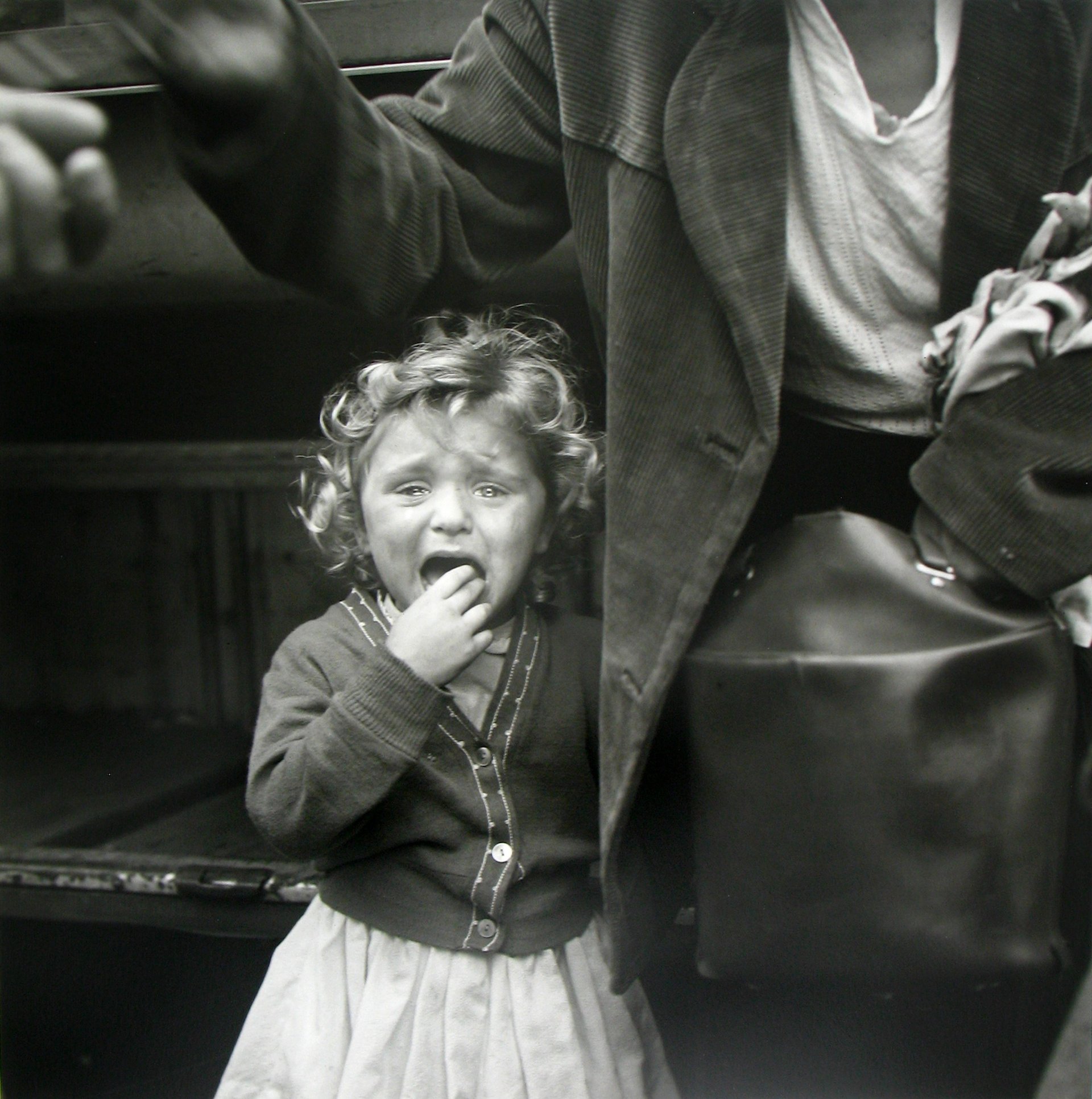
Vivian Maier, Grenoble, France, 1959 © Estate of Vivian Maier, Courtesy of Maloof Collection and Howard Greenberg Gallery, NY
The exhibition includes various works from the Maloof collection dating from the 1950s to the mid-1980s, like Super 8 films and soundtracks, vintage and modern prints, and objects that belonged to Maier, including the emblematic hat she is seen wearing in many of her self-portraits and her Rollei and Leica cameras. A highlight is a section devoted to kineticism, which explores the relationship between cinema and photography in Maier’s work.
“Maier could foresee what was going to happen in the next fraction of a second. In this sense, she was ahead of [Henri] Cartier-Bresson’s concept of the decisive moment,” Morin says. “For her, photography was a room of one’s own, to quote Virginia Woolf. It’s where she was free. Her language is free, too, because she was self-taught and subject to no conditions, or no submission to an editor, for example.”
Maier immigrated to New York aged 25 and worked in a sweatshop before primarily working as a nanny for families in New York and Chicago. She suffered from mental illness and was extremely reclusive and frequently transient. Many details about Maier’s personal life remain unknown and have been interpreted through a collection of interviews with her past employers, her trove of images and other ephemera she obsessively collected throughout her life.
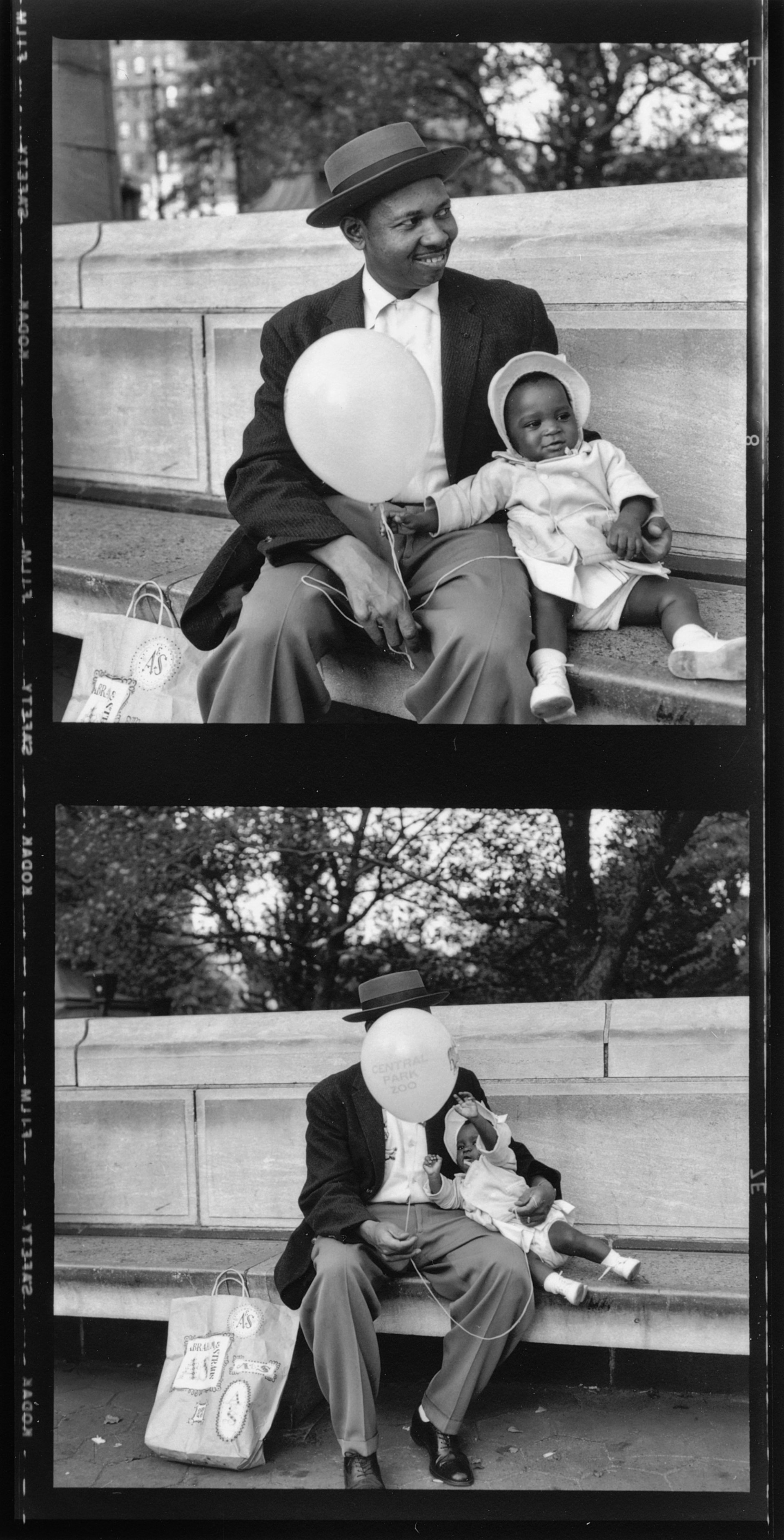
Vivian Maier, Central Park, New York, NY, September 26, 1959, 1959 © Estate of Vivian Maier, Courtesy of Maloof Collection and Howard Greenberg Gallery, NY
The Fotografiska exhibition will avoid “imposing an overexposed interpretation of her character”, Morin says. Maier had no known heirs, and her legacy has been embroiled in legal disputes over ownership and copyright infringement issues. As part of his mission to expose Maier’s work to the world, Maloof began working with the dealer Howard Greenberg in 2011, but the duo were met with an inheritance claim in 2014 that prohibited the work from being printed, exhibited or sold for the next two years. The case was eventually settled out of court, with a royalty agreement in place. Greenberg subsequently organised an exhibition at his New York gallery in 2018.
Morin adds that Maier is “a photographer who carries within her thousands of faces of other women photographers, as well as amateur photographers”. The exhibition will “bring up from the depths of history a work that was destined to go unnoticed, and which carries within it a whole lot of forgotten people, people who haven’t had the chance to be revealed”.
Morin is the director of diChroma Photography, which has organised the traveling exhibition in collaboration with Maloof and Greenberg, the Réunion des Musées Nationaux Grand Palais and Women in Motion, a Kering programme that supports scholarship on women’s contributions to photography.
- Vivian Maier, Fotografiska New York, 31 May-September 2024


